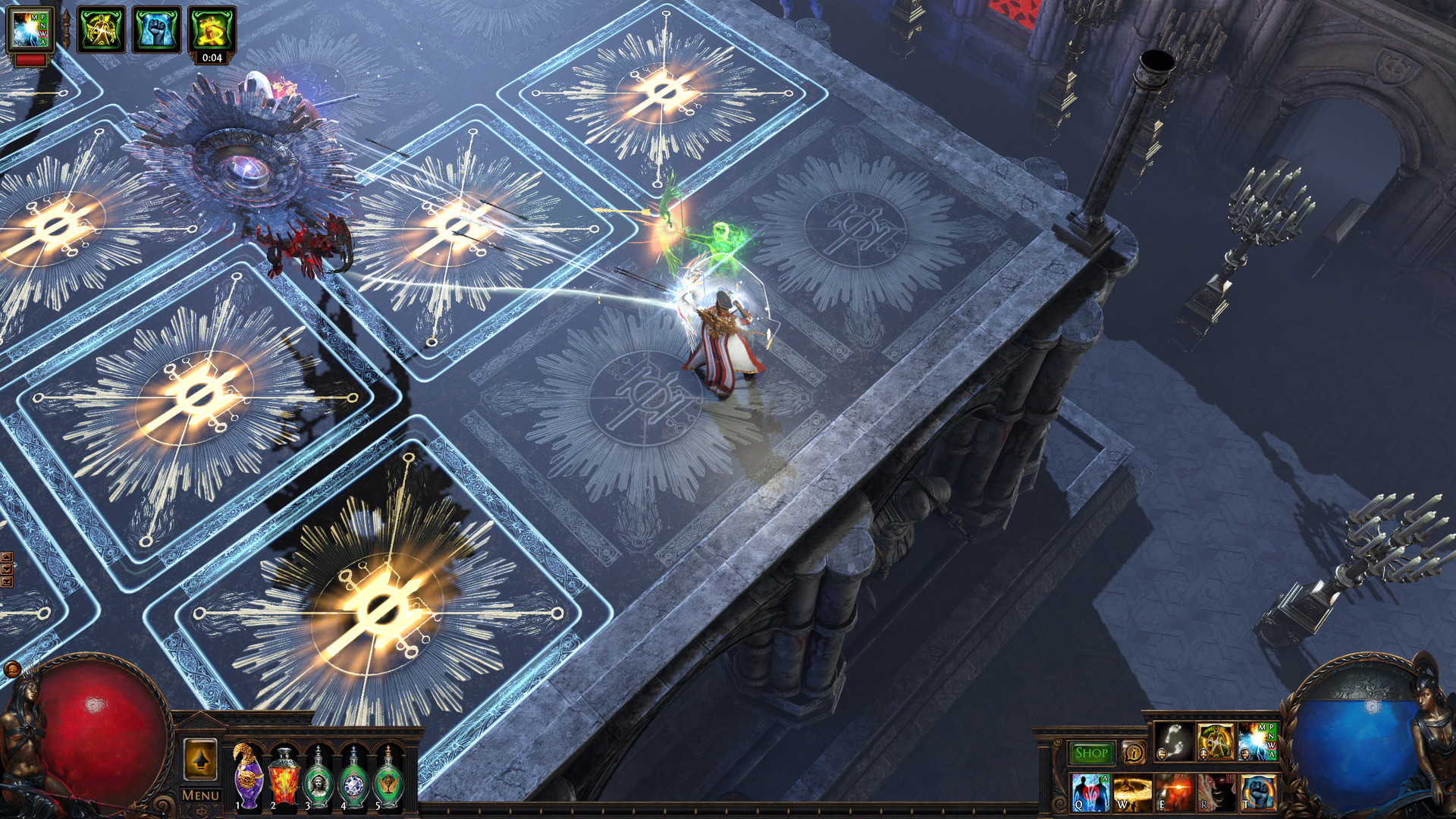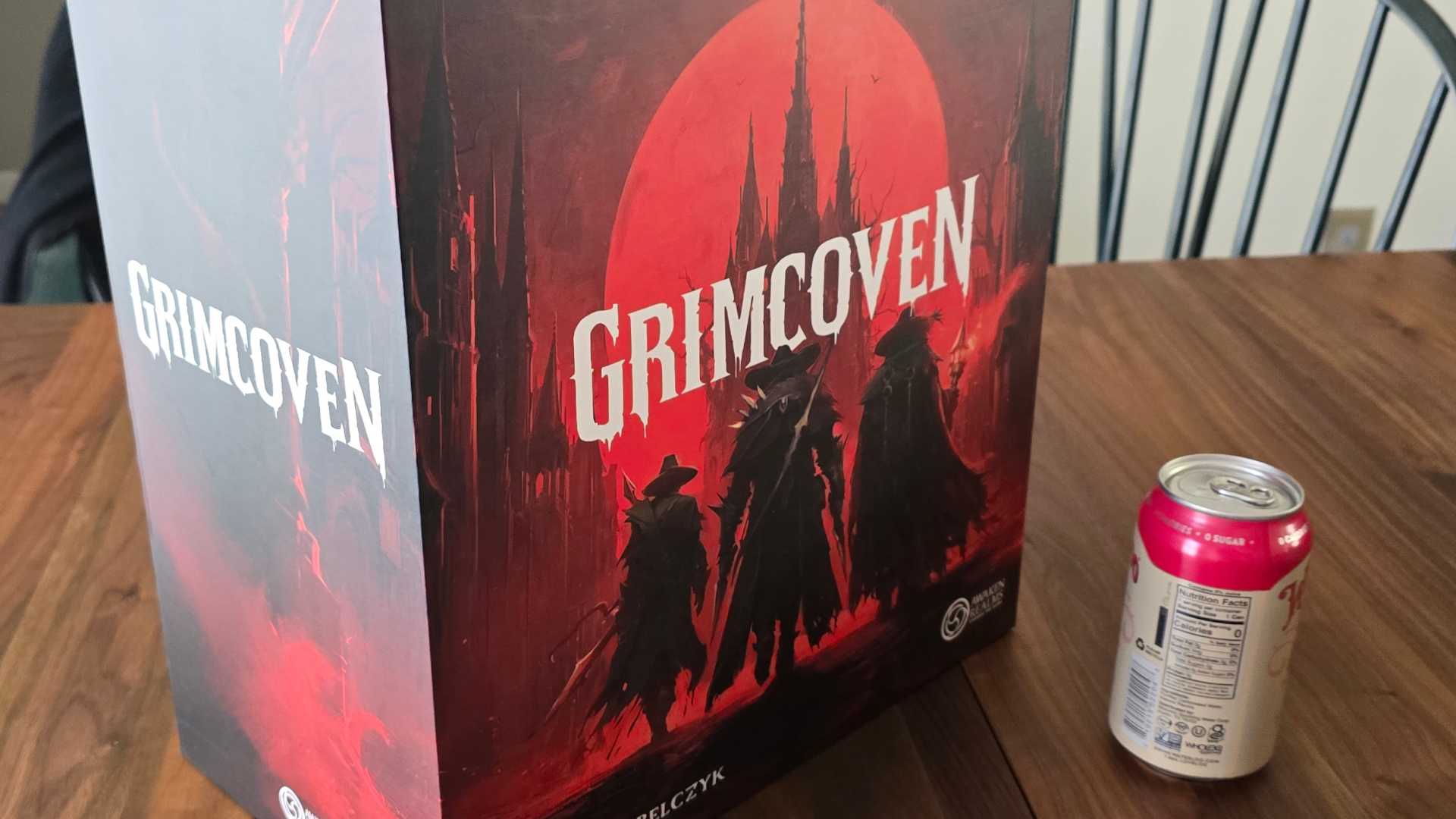"When I was growing up, games were designed to be fun, not manipulative": Path of Exile co-creator shines a blacklight on the "bulls**t" design tricks infesting all my live service games
Chris Wilson interrogates the "Dark Patterns" of modern game design

Weekly digests, tales from the communities you love, and more
You are now subscribed
Your newsletter sign-up was successful
Want to add more newsletters?

Every Friday
GamesRadar+
Your weekly update on everything you could ever want to know about the games you already love, games we know you're going to love in the near future, and tales from the communities that surround them.

Every Thursday
GTA 6 O'clock
Our special GTA 6 newsletter, with breaking news, insider info, and rumor analysis from the award-winning GTA 6 O'clock experts.

Every Friday
Knowledge
From the creators of Edge: A weekly videogame industry newsletter with analysis from expert writers, guidance from professionals, and insight into what's on the horizon.

Every Thursday
The Setup
Hardware nerds unite, sign up to our free tech newsletter for a weekly digest of the hottest new tech, the latest gadgets on the test bench, and much more.

Every Wednesday
Switch 2 Spotlight
Sign up to our new Switch 2 newsletter, where we bring you the latest talking points on Nintendo's new console each week, bring you up to date on the news, and recommend what games to play.

Every Saturday
The Watchlist
Subscribe for a weekly digest of the movie and TV news that matters, direct to your inbox. From first-look trailers, interviews, reviews and explainers, we've got you covered.

Once a month
SFX
Get sneak previews, exclusive competitions and details of special events each month!
Grinding Gear Games co-founder and Path of Exile co-creator Chris Wilson has followed some other high-profile game devs to the YouTube sphere, where he shared some interesting info and perspective on development and the industry in general. His latest video essay examines "Dark Patterns" of game design, or psychological and behavioral hooks often explicitly designed to keep players logging in or spending money at all costs.
This is maybe the most important line of the video: "I hate all of this bullshit," Wilson summarizes. "When I was growing up, games were designed to be fun, not manipulative. They didn't have literal behavioral scientists and psychologists on staff trying to rewrite my brain."
If that sounds harsh, that's because it is, but if you've played virtually any live service game in the past 10 years, you'll know that it's also pretty deserved. Games have undeniably grown smarter and more aggressive about player retention, and it can feel like fun takes a back seat to ensuring internal metrics go up (because it does).
Wilson does unpack these dark patterns in more detail, and acknowledges that some tricks can be harmless and even fun if handled properly. But a lot of them just suck.
Like many others, he defines dark patterns as "a design that deliberately manipulates user behavior, usually to get those users to spend more money or engage more than they intended." This goes much deeper than artificial scarcity, cash shops that sell currency in lopsided increments to in-game prices that require players to buy multiple or larger bundles, or mobile game review links that only open if you indicate you're going to drop a 5-star rating but refer you to feedback forms otherwise.
Wilson also points to UI traps, offering an example of a buyable upgrade that unlocks more buyable upgrades of the same type, potentially leading players to spend more money than they thought they'd need to in order to max something out. If all of those upgrades were visible at the start, making that first purchase would be a taller order, and getting players to spend even once makes it much more likely they'll spend again.
"This moving of the goalposts could potentially manipulate players into thinking that they were going to complete their character for one price, when it actually costs a lot more," Wilson hypothesizes.
Weekly digests, tales from the communities you love, and more
Daily rewards and login bonuses are another classic example. Wilson calls out a friend who apparently hiked six kilometers through the woods with a laptop in order to preserve a login streak in a game. "Players who are conditioned to logging in every day do it not because they're excited to play, but because it feels like brushing their teeth – just something they have to do," he says.
Login streaks, which offer escalating rewards that punish you for missing a single day, are the ultimate example of this. Normal, easy daily tasks with minimal rewards are less intrusive, Wilson reckons, but even then "players feel obliged to complete these so that the easy rewards don't go to waste." As someone who's played Genshin Impact since launch, I feel this in my bones. (Gacha games even get a special callout from Wilson for their rotating, limited-time character banners, which are just the tip of a predatory iceberg.)
Some games encourage you to invite friends to download the game, or incentivize group contributions via guild tasks, leveraging social pressure to promote further play. Then there are time-gated tasks, which Wilson calls "playing by appointment," where "a game tells you that you have to come back at a specific time or face consequences" like missing limited rewards or bonuses. FOMO, or fear of missing out, basically.

"When you're not the one deciding when you play a game, but instead having the game decide for you, it's worth questioning your entire relationship with that game," Wilson says.
That doesn't mean you desperately need to abandon any game employing this sort of trickery, obviously (and good luck finding a live service game that doesn't have its hand in at least a few of these cookie jars, frankly). Even Wilson, with his "cynical" heart, reckons some events, like Diablo 3's 20-year Diablo anniversary throwback, can be fun and may inspire regular, fan-favorite activities.
The problem is that these tactics can optimize the fun out of a game and program players so hard that they stop responding to the gameplay itself. "Some of them are moderately harmless if used in a way that also provides a lot of value for players," Wilson agrees, but he still calls on developers to, in so many words, do better, especially for games aimed at or highly open to kids.
"I deeply know all about these tricks and still find them affecting me far more than I am comfortable with," he says. "Imagine what it's doing to kids, who are incredibly vulnerable to the constant bombardment of gambling, compulsion, addiction, loss aversion, and anxiety-inducing dark patterns that these games contain."
Applying psychology to work out fun gameplay mechanics is one thing – "make people want to play them, and want to return to them for their own merits" – but Wilson says he'll "draw the line" at meta-progression, monetization, and obvious retention ploys.
"It's a matter of transparency, fairness, and respect for your players," he concludes. And those players should also "push back" by voting not just with their wallets, Wilson says, but also with their time and attention.
"We have an obligation to think very carefully before we employ strategies like these," Wilson says to developers. "Push back, and make sure that the reason you're adding something is because it's actually adding more fun, rather than because it'll artificially create more retention or juice some other metric."
For no particular reason, here are the best single-player games to play right now.

Austin has been a game journalist for 12 years, having freelanced for the likes of PC Gamer, Eurogamer, IGN, Sports Illustrated, and more while finishing his journalism degree. He's been with GamesRadar+ since 2019. They've yet to realize his position is a cover for his career-spanning Destiny column, and he's kept the ruse going with a lot of news and the occasional feature, all while playing as many roguelikes as possible.
You must confirm your public display name before commenting
Please logout and then login again, you will then be prompted to enter your display name.



